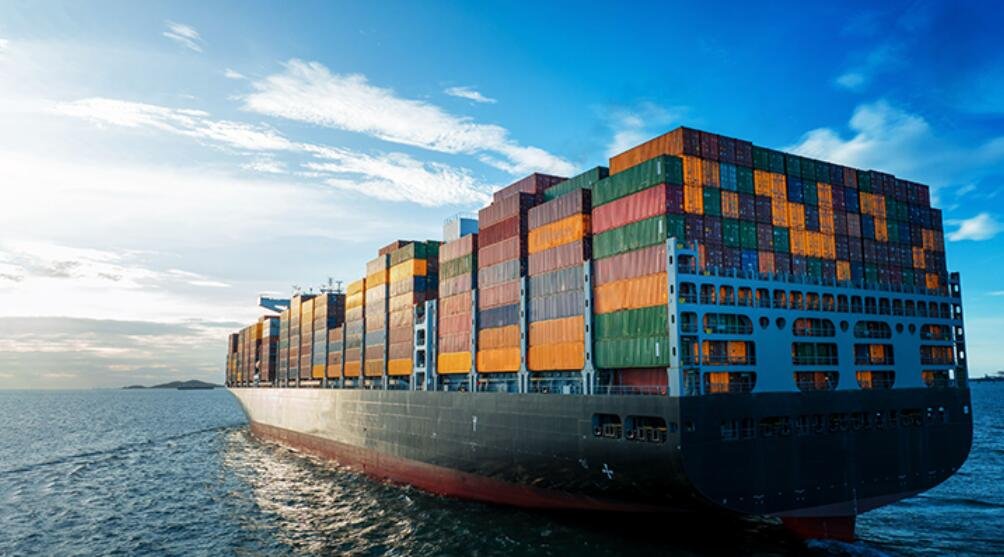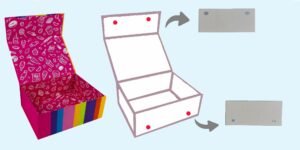When it comes to custom packaging exports—whether it is foldable rigid boxes, paper bags, or luxury gift packaging—understanding international trade terms is essential. If you are sourcing from overseas (especially China), terms like EXW, FOB, and DDP will appear frequently in quotes and contracts. But what do they mean, and how do they affect your cost and responsibility?
Let’s break down these three commonly used Incoterms in the packaging export industry.
EXW (Ex Works)
EXW means the seller makes the goods available at their premises (factory or warehouse), and the buyer takes full responsibility for shipping from that point onward.
- Responsibility: Buyer arranges all transport, export clearance, duties, and import taxes.
- Risk transfers: As soon as the goods are picked up.
- Use case: Often used when the buyer has their own freight forwarder or prefers full control of logistics.
For example: You purchase 10,000 custom paper boxes from a factory in Xiamen under EXW. You must organize pickup, trucking to port, export documents, and sea freight to your country.

FOB (Free On Board)
FOB is one of the most common terms for sea shipments. Under FOB, the seller is responsible for delivering the goods to the port of departure and handling export clearance. After the goods are loaded onto the vessel, the buyer takes over.
- Responsibility: Seller handles local transport and export clearance. Buyer handles ocean freight, insurance, and import duties.
- Risk transfers: Once goods are loaded on the ship.
- Use case: Balanced term when buyers want sellers to manage local export steps.
For example: Your supplier quotes you FOB Xiamen. They will deliver your custom printed boxes to the port, clear customs, and load them onto the ship. You or your forwarder arrange sea freight and handle everything after departure.
DAP – Delivered at Place
DAP (Delivered at Place) means the seller is responsible for almost everything: production, shipping, and delivery to the buyer’s address (or designated location). However, the buyer is responsible for import duties and taxes.
- Responsibility: Seller handles transportation and export formalities. Buyer handles import customs and duties.
- Risk transfers: Upon arrival at the agreed destination (before customs clearance).
- Common Use: Ideal for buyers who want shipping handled but prefer to clear customs locally.
For example: Your gift packaging supplier offered you DAP Hamburg. Your packaging arrives at your warehouse, but you must pay VAT and any applicable customs duties upon arrival.
DDP (Delivered Duty Paid)
DDP is the most convenient option for buyers. The seller delivers goods to the buyer‘s doorstep, covering all logistics, duties, and taxes.
- Responsibility: Seller arranges shipping, customs clearance, and pays import taxes.
- Risk transfers: Once goods are delivered to the buyer’s location.
- Use case: Ideal for first-time importers or companies without import experience.
For example: Your packaging supplier quotes you DDP London. You simply wait for your luxury magnetic gift boxes to arrive—no paperwork or customs involved.
The table below will give you a quick understanding of each term:
| Term | Seller Handles | Buyer Handles | Best For |
| EXW | Product only | All logistics, duties, and clearance | Experienced importers with own logistics |
| FOB | Export delivery & port loading | Freight, insurance, import clearance | Balanced control & flexibility |
| DAP | Everything to your address (excluding duties) | Import taxes & customs | Buyers wanting shipping done but keeping local customs control |
| DDP | Door-to-door + taxes & clearance | Nothing | Small businesses or buyers with no import experience |
Whether you are importing custom boxes, eco-friendly paper bags, or luxury rigid packaging, understanding EXW, FOB, DApPand DDP helps you avoid hidden costs and delays. Always clarify which Incoterm is being used in your quotation, and confirm whether duties, freight, and customs are included.
Need help navigating logistics for your next packaging order? Our team offers both FOB and DDP shipping options, and we are happy to explain which one fits your needs. Contact us at info@chiefcolor.com for any free advice.




